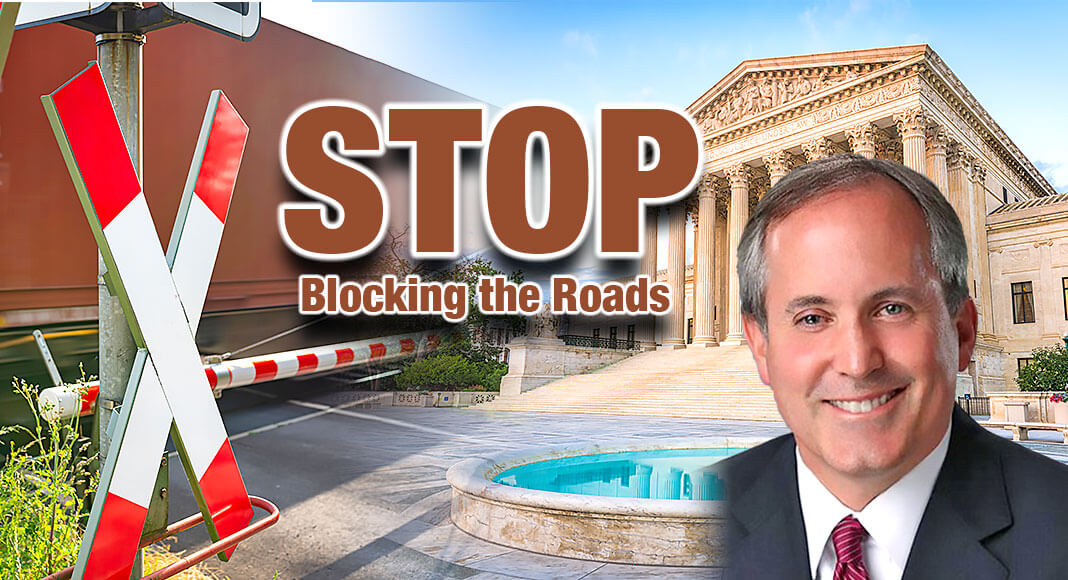
Texas Border Business
AUSTIN, Texas – Attorney General Paxton has joined an Indiana-led cert-stage amicus brief that calls for the U.S. Supreme Court to take up a case that has important implications for commerce, transportation, and the ability of local emergency services to carry out their duties in a timely manner.
In State of Ohio v. CSX Transportation, the Ohio Supreme Court recently held that an Ohio “anti-blocking” law that prohibits railroad companies from allowing their stopped trains to block railroad crossings for more than five minutes was preempted by federal law. Texas and other states argue that the Ohio Supreme Court is wrong.
Similar cases have popped up across the country, due in large part to two federal laws: the Federal Railroad Safety Act, enacted in 1970, and the Interstate Commerce Termination Act, enacted in 1995. While these two statutes do grant the federal government some authority over the regulation of the railroad industry, nowhere do they strip power from the states to enact anti-blocking laws.
To the serious detriment of communities across the country, some courts have unjustifiably expanded the scope of the two federal laws and allowed blocking to become all too prevalent. Beyond simply being an inconvenience to commuters, blockings have historically imperiled the ability of local emergency services to aid those in need.
The brief highlights these real-world consequences: “In recent years, too many emergency vehicles have arrived too late to save lives; too many EMTs have risked life and limb climbing over trains to reach those in need; too many fires have burned while emergency crews detoured miles out of the way; and too many communities have been bisected for days waiting for train crews to unblock intersections. Blocked grade crossings have serious—sometimes life-threatening—consequences for everyday Americans.”
To read the full cert-stage brief, click here.















